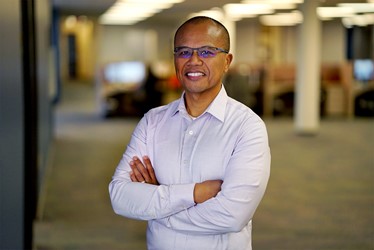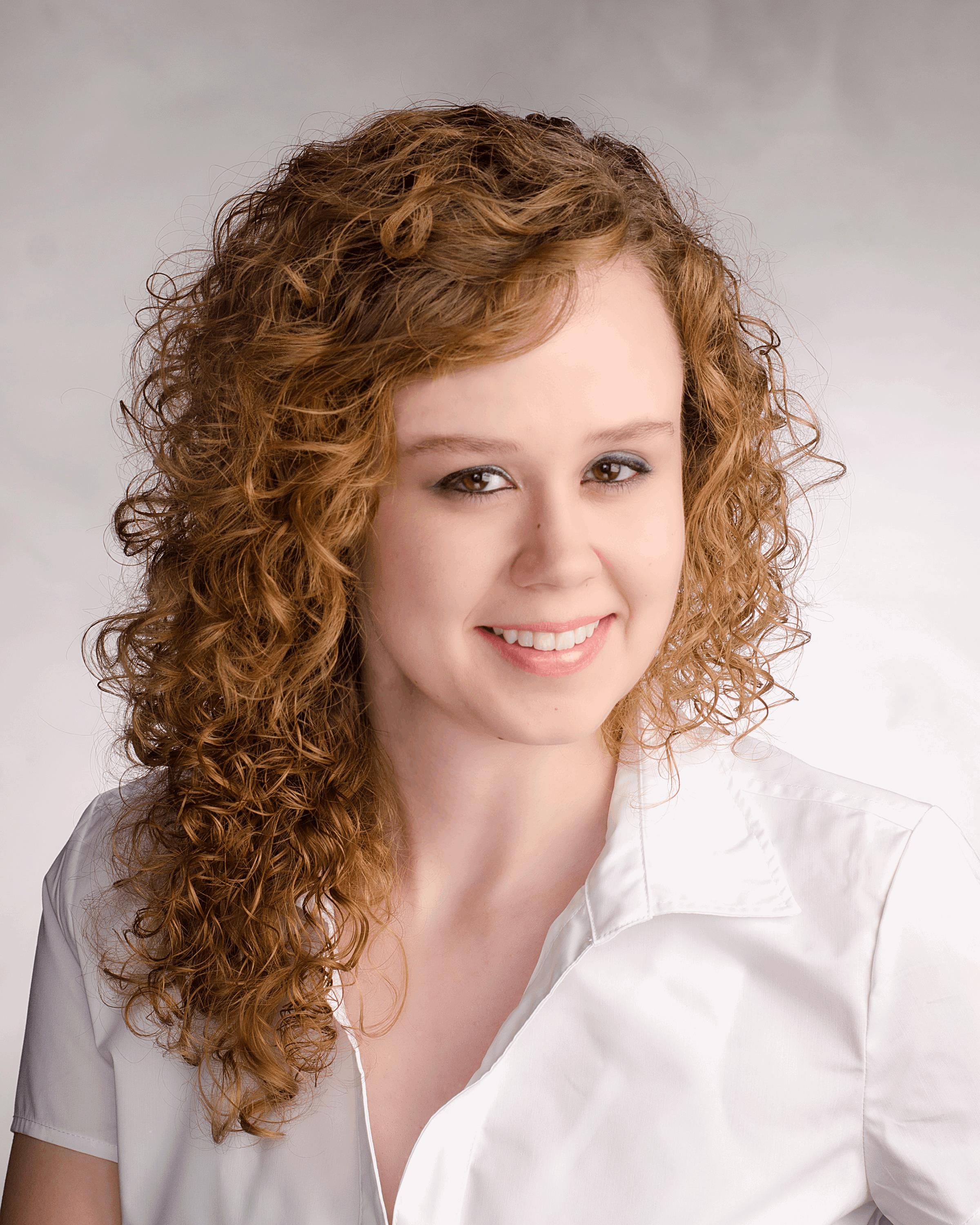Role Call: Director Of Engineering
By Marissa Stonefield

Is the grass truly greener on the other side of the fence? Does uncertainty about your future occupation keep you up at night? How do you know whether you are making the right career choice for you?
Role Call is a series on RF Globalnet that can help answer these questions by taking a “peek behind the curtain” at different jobs and career paths in the RF and microwave industry. We will explore what each position entails, how much you have to know, and what experience you need to get started.
RF Globalnet’s most recent subject is Mark Felipe, Director of Engineering at Benchmark Electronics. Mark thinks of himself as an inquisitive engineer who welcomes a challenge and truly enjoys the subject matter of his work. As an individual contributor to his work place, Mark has worked on many types of projects, including translating product requirements into design specifications, interfacing with multiple stakeholders, and tackling other RF system design challenges. As a leader, Mark enjoys working with, learning from, and mentoring people of all sorts of domain specialties.
What does your position as a director of engineering currently entail?
My responsibilities are two-fold: drive innovation, and grow and develop engineers. To drive innovation, I look at our technology capabilities, what the market is doing, and where it’s going. I then strategize how our skills can dovetail into market trends. To help grow and develop engineers, I prioritize a work culture where people are allowed to do things that are creative and innovative. I foster an environment where they have leeway in regard to their work processes and how they choose to solve problems. I want them to feel safe sharing their opinions, without fear of judgment, because even if your idea or thought isn’t feasible, it can spark a conversation to lead to innovative products.
What education/certifications are required for this position, and what are the continuing education/certification requirements?
This is obviously a senior role, but requirements vary across departments and sectors. As for me, I have a Bachelor of Science in Electrical Engineering, a Master of Engineering, and 18 years of industry experience. Good project management skills are a must, including troubleshooting roadblocks and managing people and budgets. There’s no substitute for practical experience, which only comes through time.
Continuing education involves staying on top of best practices in engineering methods, technology developments, leadership, and communication. I do this through a lot of reading of publications (I devour leadership books), as well as networking with my peers and picking their brains.
How drastic was your transition from a more “hands-on” engineer to a director role with more administrative responsibilities? What “hands-on” skills translated well into your administrative duties, and what new skills were you required to learn?
The transition to director was very natural. I liked the challenge and the growth opportunities, although it can be stressful at times. The great thing about my position is that it isn’t purely administrative. When projects come down the pipeline, I am still very hands-on and involved. It’s still very technical, and I continue to do analysis and simulations, just as I did when I was an engineer.
Previously, I was project lead for many customer engagements, which gave me a hefty toolset to lead others. I still write up proposals, but I also train newer engineers to take on that responsibility. I believe leadership is character in action. My leadership style is a natural outflowing of who I am. I enjoy interacting with people and developing relationships, and that’s how I try to lead.
What experience did you need for your position? How long did it take you to reach your current skill level?
I was recruited for this position as a result of my systems analysis experience. I have to understand large systems and formulate solutions at a high level. To be in this position, I also have to engage customers technically. I worked for some of the largest names in the industry — including Google, Qualcomm, and Broadcom — but only reached the director level after serving more than 10 years overall.
What types of things did you need to learn on the job?
As a project lead, I had some experience managing people, but I’ve had to learn to deal with all sorts of different types of people’s personalities and world views. Human relationships can be messy. As I manage more people with different perspectives, I learn a lot every day. You don’t have to do everything perfectly as a manager, but you need to do enough right to help people do their best work, and provide an environment they can thrive in.
What does a typical day in your position look like?
First thing in the office I construct a list of things to do. I categorize the action items as urgent or important and, by 9 a.m., that all blows up as I run around putting fires out. When other pressing matters arise, I have to address them. After a couple of hours those issues are resolved and I can return to my to-do list. Some of my tasks are technical and some are administrative. I have to look at tasks from a high level and delegate responsibilities.
My administrative tasks include status updates, filling out forms, meetings with the team, and looking at things from an organizational level. I like to think of my time as partitioned between working “in” the business and “on” the business. “In” the business is strategic initiatives, which is about 65 percent of my day, and “on” the business is visionary work, which is about 35 percent.
What are the biggest personal/professional challenges that your work presents for you?
I have to admit I am a workaholic. My work-life balance is skewed to work. I really need to do a better job at having a balanced life. I am physically with my family, but mentally I’m not present; I’m thinking about work. Professionally, my biggest challenge is that, although this is great work we’re doing, it feels like we’re riding in an airplane that we’re building in mid-air. We’re installing a lot of new infrastructure that isn’t quite in place yet, but will be soon.
What specifically drew you to this career path?
In high school, I was about as wayward as you could be. I never took geometry or algebra, and graduated from a continuation high school. It took me a while to get my life together, but later I found I had a natural ability in math. So I turned my poor student abilities around and got straight As. At first, I thought I wanted to go into physics, but realized that even with a Ph.D., it’s hard to find active jobs. However, this led me to applied physics, which led me to engineering, and I landed in RF. I found I had a natural knack for RF — I can visualize it.
What is your favorite part of your occupation?
Before being a director, I had always exercised the analytical side of my mind, but not the relational side very much. Now, I can exercise both the analytical and the relational parts. I am in a position in which I feel I am flourishing and thriving. This is exactly what I should be doing — it’s my calling.
As an individual contributor or project lead, what was the most challenging project that you faced? What were the specific obstacles in this project and how did you overcome them?
I designed an E-band radio for a former company. The schedule was extremely aggressive, we were short staffed and, on top of that, one of the leads was hard to work with. All of these things played into making the project difficult. I had to use my people skills to work around the differing personalities and get the job done for the customer. It required being calm, building a rapport with everyone on the team, and focusing on what could be actioned upon, rather than the disagreements.
As a leader, what methods do you use for providing cross-functional engineering mentoring and leadership development?
I like to teach hard work, humility, and communication. Those three pillars are the same regardless of the team. The way I think about [it] is that I try to be a river, not a reservoir. I allow knowledge and wisdom to flow through me, rather than store up like a reservoir to puff myself up.
Humility gives me the ability to be open to others’ opinions. I like to ensure I have all the facts and make decisions that are in the best interest of the team. And, it’s simply impossible to become a great leader without being a hard worker and great communicator. Communication doesn’t necessarily mean talking — it means listening and learning from others.
We all have interests that are separate from work. What hobbies or other interests do you have outside the office?
I devour books. I am on my 34th book this year. I read both fiction and non-fiction. The non-fiction books are mainly leadership based, and the fiction books I’m drawn to are ones that offer insight into the human psyche and interpersonal relationships. I also write poetry. At times I have this creative urge to put pen to paper and capture life as I see it. I write about all sorts of things, as creativity is whimsical, but a large portion of my poems would probably fall into the interpersonal relationship bucket. But, most of all, I like building friendships and spending time with my family, friends, and close-knit community.
What advice would you give to an individual just starting out in this field, both in terms of component design and professional development?
Engineers that tend to flourish are what I like to call “passionately curious.” They are essentially problem-solvers. Engineers have to be very good at identifying the problem and finding methods to solve it. My advice to become a successful problem-solver is to try to sharpen analytical skills by reading recent research and trying to understand how those problems were solved. You can talk to others who have the passionately curious mindset and surround yourself with them. Also, I strongly advise to have a work-life balance — if I had to do it all over again, I would definitely have more balance.
...
If you’ve ever wondered what a day in your RF dream job looks like, or you just want to discuss a job you’re passionate about, contact the author at mstonefield@vertmarkets.com with story suggestions, or to volunteer as a Q&A subject.
About the Author:
 Marissa Stonefield is a Web Content Specialist for Photonics Online, RF Globalnet, and Med Device Online. She graduated from Messiah College with a B.A. in marketing, and from the Community College of Beaver County with an A.B. in business administration. She has previously worked as a content writer for Vanko Trading Inc., and as a journalist for Examiner.com, and Weddings Year Round Magazine in Lancaster, Pa.
Marissa Stonefield is a Web Content Specialist for Photonics Online, RF Globalnet, and Med Device Online. She graduated from Messiah College with a B.A. in marketing, and from the Community College of Beaver County with an A.B. in business administration. She has previously worked as a content writer for Vanko Trading Inc., and as a journalist for Examiner.com, and Weddings Year Round Magazine in Lancaster, Pa.
